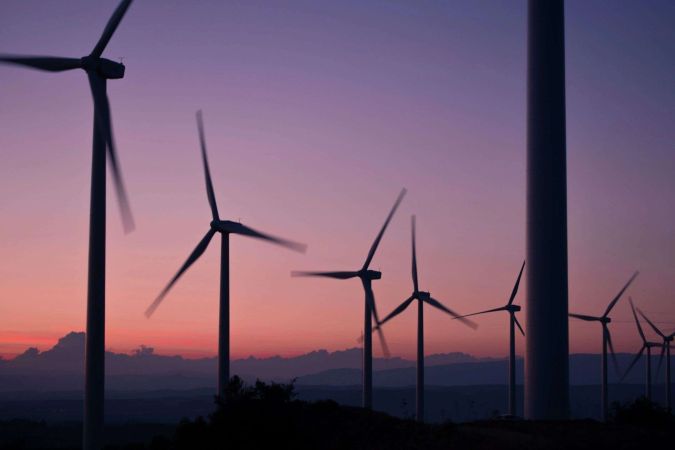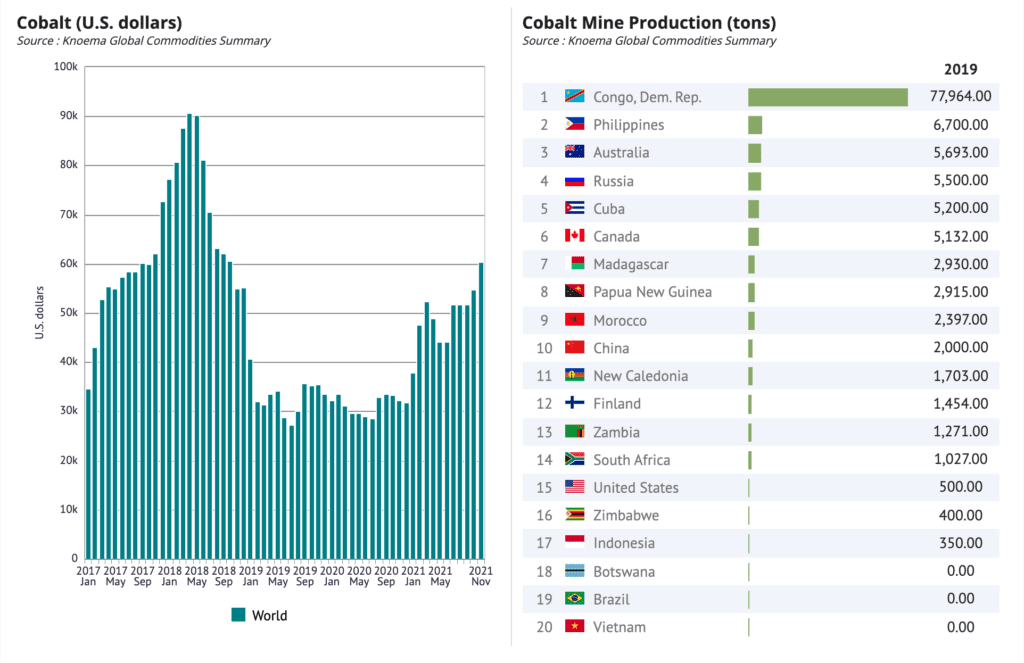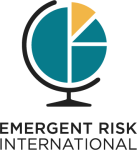OUR DATA PORTAL Emergent RiskIQ Login
Seabed Mining: Will the Drive for EV Battery Materials Wreck the Ocean Environment?

As the International Seabed Authority (ISA) struggles to regulate seabed mining under a 2023 deadline, corporations and nations are squaring off over the environmental and economic stakes amid rising demand for the metals needed for electric vehicle (EV) batteries and renewable energy technologies.
Why It Matters:
One of the key challenges to keeping up with demand for electric vehicles and renewable energy, both of which are surging as the world seeks to build back better from the pandemic and in the face of increasingly obvious impacts of climate change highlighted in 2021 by COP26, is procuring sufficient cobalt, nickel and the other metals and minerals needed to make the batteries and renewable technologies. Cobalt prices have been climbing since July and are anticipated to remain high for the foreseeable future, with demand projected to grow thirty times over by 2040, according to the International Energy Agency. Approximately 70% of the world’s cobalt comes from one country, the Democratic Republic of Congo (DRC), with the vast majority of cobalt mined there belonging to China, putting the world’s supply at the mercy of both African and Chinese geopolitics.

Harvesting poly-metallic nodules that contain cobalt, nickel and other metals used in EV batteries is as easy as vacuuming up nodules resting on the surface of the seafloor, enabling diversification of supply and potentially easing prices – or so the island nation of Nauru and the mining firm it has contracted to harvest seabed modules from the Pacific Ocean floor have posited. An area called the Clarion Clipperton Zone, located between Nauru and Mexico, some 6,000 miles away, contains sufficient nodules to outfit 4.8 billion EV batteries, generating an estimated $95 billion over 23 years. However, scientists are less convinced that the nodules can be harvested without seriously damaging ocean ecosystems about which we still know little, raising questions about the long-term environmental impacts of seabed mining, both within harvest areas and in other non-mining areas due to the potential for sediment plumes to travel great distances on underwater currents.
These concerns prompted several major multinationals in the technology, automotive and banking sectors – including Google, Scania, BMW Group, Volvo, Volkswagen, Triodos Bank, Samsung, and Philips, among others – to endorse an open letter in December calling for a moratorium on seabed mining. The corporate activity coincided with a virtual meeting of the ISA to discuss how to proceed with a road map for determining regulations for seabed mining, ahead of which the African group of nations, comprising 54 states, and 10 Latin American ISA member states separately registered concerns about the group’s suitability to serve as the regulating body in this matter, given that the ISA is funded by royalties derived from member-nation deep-sea mining. Complicating matters is the debate among the 168 member nations, which includes China, Russia and the EU but not the US, about the extent of ISA’s regulatory authority and whether compliance with ISA guidelines is voluntary, as China argues, or compulsory.
What To Watch For:
Results from ISA meetings in 2022. The legal and technical commission is scheduled to meet, pandemic allowing, in mid-March, immediately prior to a council meeting scheduled for March 21-April 1, which is likely to yield insights into the direction the group is headed. Additional legal, technical and financial meetings are scheduled for July, ahead of another council meeting, before a full Assembly meeting planned for August 1-5.
Nauru’s preparations. Nauru is likely to start mining as of June 2023, barring concerted international efforts to extend a global moratorium on seabed mining to enable further scientific research on its impacts. Preparations are likely to pick up pace toward year’s end.
Pressure from activist investors to sign the seabed mining moratorium. With several significant auto-industry and technology companies leading the charge, banks and investment portfolio managers facing heightened demand to prove they are going greener in 2022 are likely to experience pressure to add their corporate endorsements to the moratorium on seabed mining.
Sign up for our Newsletter
ERI has offices in the United States, Singapore, the United Kingdom and Ireland. Want to know more?
